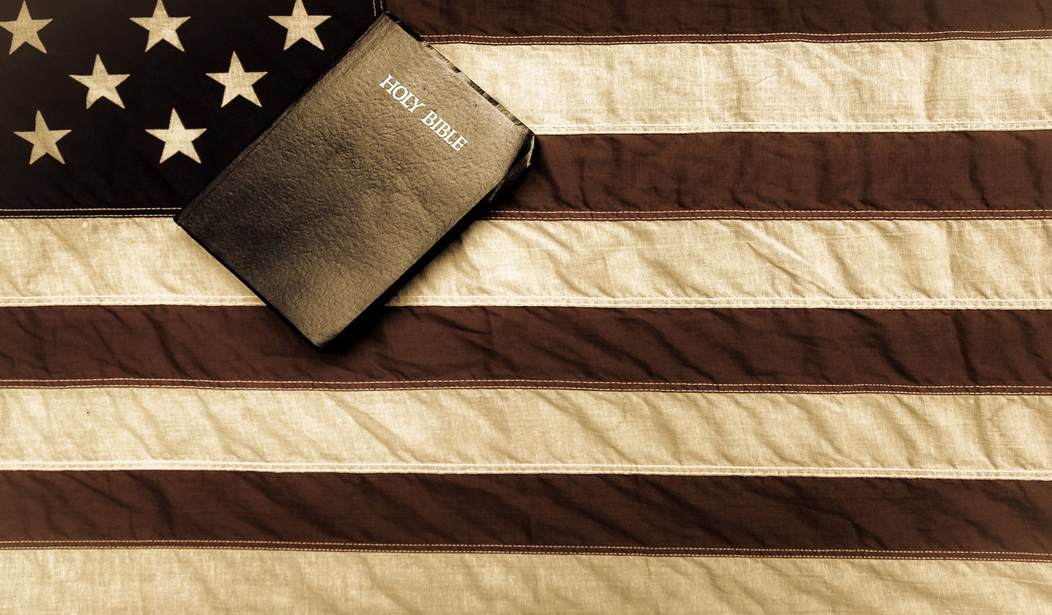Last week, the Tennessee state Senate passed a bill to mark the Bible as its official state book. Governor Bill Haslam is likely to veto the measure, as he is reportedly opposed to it.
There are good reasons to support the bill, and good reasons to oppose it, but some of the reasons given are rather questionable. The bill itself has nothing to do with establishing or acknowledging a religion in the state, but merely focuses on the historical importance the Bible has had in Tennessee. For this reason, it passed the state Senate 19-8.
Here are the 4 reasons why this bill should pass, making the Bible the official state book.
1. Tennessee families kept their genealogies through their Bibles.
The bill opens by acknowledging a few notes from the Volunteer State’s history. Before the 20th century, the state did not keep comprehensive records of births, marriages, and deaths, but families recorded their own histories in family Bibles that were passed down through the ages.
“These Bibles contain a history of Tennessee families that may not be found otherwise,” the legislature argues, so “the Tennessee State Library and Archives holds hundreds of family Bible records in several formats and within many collections,” including those of many prominent families throughout the years. This bill acknowledges that heritage and the state’s collection of Bibles as “a wonderful display of history at a very personal level.”
This is why ACLU Tennessee Executive Director Hedy Weinberg is so wrong when she declares her disappointment “that Tennessee lawmakers have voted to use their official positions to promote their religious beliefs.” If she had taken the time to read the bill, she would know this has nothing to do with religious belief, and everything to do with Tennessee’s heritage.
Next Page: Why this isn’t unconstitutional in Tennessee.
2. The bill doesn’t violate the Tennessee Constitution.
Tennessee Attorney General Herbert Slatery said last April that this bill would privilege one religion over others. He quoted the Tennessee Constitution, which states, “no preference shall ever be given, by law, to any religious establishment or mode of worship.” Here’s one big problem with this argument: acknowledging the historical importance of the Bible does not grant a preference to any “religious establishment,” for many reasons.
Religious establishments in America are many and varied, as they are in Tennessee. Such a provision applies to granting special favors to the First Baptist Church, for instance, or the Episcopal Church, over other religious organizations. Acknowledging the Bible does not grant any special privilege, nor does it favor one “mode of worship” over the other.
Adopting the Bible as a state book does not constitute a governmental support for the doctrines in the Bible, nor the modes of worship that book presents. It merely acknowledges the historical importance of that book to Tennessee.
Next Page: This does not violate the U.S. Constitution.
3. It does not violate the U.S. Constitution.
In reporting this story, the Washington Post‘s Yanan Wang wrote, surreptitiously, “There’s also the small matter of the First Amendment to the U.S. Constitution, which bars the establishment of religion by the states and U.S. government.” That statement sounds great, on the principles of separating the institutions of church and state, but it is blatantly false on the merits.
The First Amendment only restricts the federal government, not the state governments. When this important law declares, “Congress shall make no law,” it refers to the United States Congress, emphatically not to state legislatures. This is an important distinction, because many states at the time the Constitution was adopted had established churches, and the founders did not consider that a problem.
Many of them opposed established religion itself, but they believed the federal government had no right to force the states to ban it. If they had, the Constitution might not have been ratified. This comment seems innocuous, but it betrays a fundamental ignorance about history and the Constitution. If the Tennessee Constitution did not explicitly champion separation of church and state, the state would be under no compulsion by the First Amendment to do so.
Next Page: This does not trivialize religion.
4. It does not trivialize religion.
This is probably the most substantive disagreement with the bill. Last year, Lieutenant Governor Ron Ramsey declared, “We don’t need to put the Bible besides salamanders, tulip poplars and ‘Rocky Top’ in the Tennessee Blue Book to appreciate its importance to our state.” Democrat Senator Jeff Yarbro added, “I don’t think that’s why we read the Bible, I don’t think that’s why we send our kids to vacation Bible school.”
“To those of us who grew up in this faith, it is so much more,” Yarbro concluded. But this law does not trivialize the Bible, it acknowledges the historical role the book has played in Tennessee history.
The bill’s text never mentions religious doctrine, the importance of reading the Bible, or the book’s centrality to any particular religion. It only seeks to pay due respect to the book’s importance to the history of Tennessee. This is not about the separation of church and state, it’s about what makes Tennessee Tennessee.












Join the conversation as a VIP Member